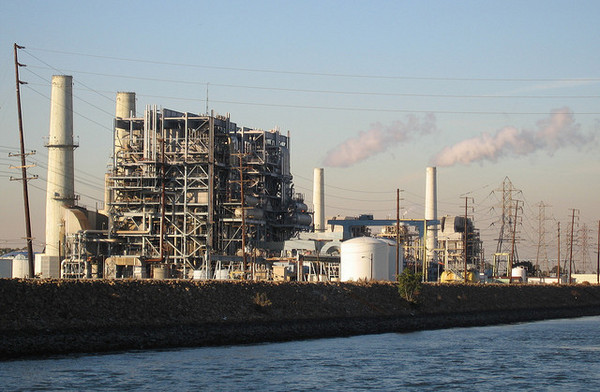California Climate Law: Hurting the Hurting


The California’s Air Resources Board is about to impose a new program, called Cap and Trade, that will further harm the California economy. Worse, it will disproportionately hurt the poor and minorities. Cap and Trade is being imposed on California as part of the Global Warming Solutions Act. No one needs to be told that the national economy is in trouble and California’s economy faces particularly difficult times. Everything that should be down is up (like energy prices, food prices, interest rates, unemployment rates and foreclosure rates) and everything that should be up is down (like tax revenues, local/state government services, the stock market and family incomes).
Things are going to get worse before they get better, and government should be working to create an environment that helps struggling small businesses and low-income families. Unfortunately, California regulators appear determined to ignore the economic pain and unfairness of AB 32, the California climate law. The public is confronted with reports about abstract concepts like “mandatory caps on state-wide greenhouse gas emissions” and “reducing California emissions to 1990 levels by 2020,” but the average Californian has little idea what AB 32 will mean to their daily life and household budget and aspirations. Policy-makers—and the opinion elite—would prefer to keep the debate theoretical and avoid public focus on AB 32’s economic consequences because they know that the average Californian would never accept the cost, inconvenience and sacrifice that AB 32 will require—especially now!
This is particularly true in California’s poor and minority communities, where the regressive nature of increased energy costs and taxes disproportionately hit economically disadvantaged families. While most California families will find it difficult to absorb thousands of dollars in increased energy costs, minority communities will bear the brunt of the hardship because the poorest households spend a much larger percentage of their income on energy costs. These costs are estimated at nearly $1000 per year initially rising to almost $3,000 when the program is fully operational. Of course there will be job loses as well. Annual job losses to the California Economy are estimated at 76,000 to 107,000 the first year growing to perhaps 485,000 jobs in 2020. Lost economic activity of nearly 2% of gross state product, or about $250 to 350 billion over ten years. Much of this derives from reductions in productivity across the economy, and negative trade implications due to reduced competitiveness.
Perversely, AB 32’s drive to reduce greenhouse gasses is likely to slow relocation or upgrades to existing facilities that impact low-income communities. This is not news to policy-makers. From the beginning of the climate change debate, there has been little dispute that low-income families and minorities will bear a disproportionate share of the burden.
In fact, the National Black Chamber of Commerce published a study in 2000 on the Kyoto scheme’s impact on the African-American community and concluded that “Blacks and Hispanics are especially vulnerable to the economic downturn and job losses likely to result from implementation of the Kyoto Protocol.” The same applies to AB 32. According to Roy Innis, “it will cause countless families to choose between food on the table and fuel.” Innis, a long-time civil-rights activist and chairman of the Congress for Racial Equality, said “energy is the master resource of modern society ... with abundant, reliable, affordable energy, much is possible. Without it, hope, opportunity and progress are hobbled.”
Further, AB 32 dramatically expands the Air Board’s regulatory authority and decreases the public’s input on California’s energy policy. While it may make political sense for lawmakers to punt such a controversial measure to an unaccountable and unelected regulatory authority and avoid the political consequences of the resulting damage to the economy, California families deserve a voice, via their elected officials, in developing an energy policy that has such a direct impact on an increasing percentage of their household budgets.
Accordingly, California needs to delay implementation, of AB 32, or dramatically change it, until more effective solutions are found and the economy is strong enough to absorb this massive new tax increase. California lawmakers must protect low-income and minority communities from the inevitable economic costs of AB 32 and ensure that minority businesses and families are not left out of the debate.
For now, AB 32 will only make a bad economic situation worse—particularly in disadvantaged communities across the state. As long as the economy continues to struggle, we simply cannot afford to put ideology ahead of the quality of life for millions of Californians.
Tom Tanton is a former Principal Policy Advisor with the California Energy Commission.
(This article is an updated version an original published July 31, 2008 in the LA Sentinel)



